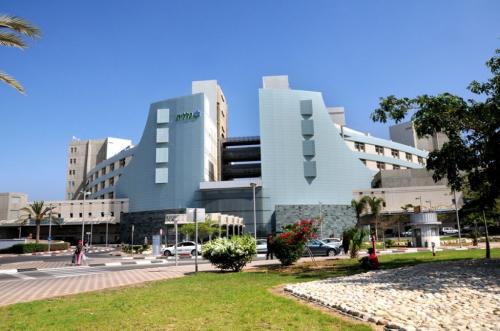This is the second of three blogs about the experiences of 30 students in the Milken Institute School of Public Health at the George Washington University’s MHA@GW program during an immersion experiences in Israel. The tour was organized and led by this blog’s author, Leonard H. Friedman, PhD, FACHE, director of the MHA@GW program. You can find his first blog here.
This blog describes the first three days of our Executive MHA immersion program in Israel this year.
Monday
We began with a visit to the Jerusalem Municipality – the core of city government and home to the offices of the professionals who oversee the diverse services provided to residents of Jerusalem, including public health and social services. We received an overview of the Israeli Health System from Dr. David Chinitz, Professor of Health Policy at the Hebrew University Hadassah Braun School of Public and Community Medicine and one of Israel’s foremost experts on the organization and funding of health services. We learned about the multiple welfare programs provided by the Jerusalem Municipality by Gil Rivoosh, Director of Welfare Programs. Following Mr. Rivoosh, we were joined by Professor Shmuel Shapira who provided detailed information about emergency and mass casualty medicine. That afternoon, we traveled to Shaare Zedek Medical Center in Jerusalem where we met Professor Jonathan Halevy, MD, Director General (the CEO) of the Hospital. Shaare Zedek is a 1,000 bed hospital accredited by Joint Commission International. Dr. Halevy spoke to our students about essential health benefits and how new services are added to the basket. Following the Director General, Dr. Yosef Mendiovic, Deputy Director and Head of the Quality and Safety Unit at Shaare Zedek came in to talk about how the hospital builds quality measures into the delivery of care. A tour of the hospital and examination of their ability to manage a mass casualty event concluded our day.
Tuesday
This was our health policy day. We began in the morning with a visit to the Myers-JDC-Brookdale Institute, Israel’s leading center for applied research on social policy and human services, serving Israel, the Jewish world, and the international community. Students met with Dr. Bruce Rosen, Director of the Health Care sector at Myers-JDC-Brookdale. The theme of his discussion was mental health policy in Israel. Following Dr. Rosen was Dr. Shirli Rezniski, who spoke with our students about policies centering on the availability of long term care services. While the population of Israel is generally young, there are a growing number of older adults who require the continuum of long term care. After lunch, we headed to the Kenesset, home of Israel’s national legislature. Joining us were Members of the Knesset Leah Padida and Dov Hanin, who shared their respective perceptions on Israel’s National Health Insurance Law and took questions from our students. Prior to our departure, we took a guided tour of the Knesset.
Wednesday
While the majority of Israelis live in larger cities, there are many persons who live in more rural communities. In order to understand the way in which health services are provided to rural areas, we traveled south to Beersheba, the largest city in the Negev Desert. Our first stop was the Rahat primary care clinic operated by Clalit, one of the four health insurance plans (HMO’s) in Israel. What makes this clinic unique is that they are located in an impoverished Bedouin community a few kilometers outside of Beersheba. Our students met with the physician directors and other clinical staff of the clinic and came to understand how culturally appropriate care is provided to the population of this community. After our clinic visit, we drove to Soroka Medical Center, the largest hospital in the Negev. Our students soon discovered that Beersheba is just 40 kilometers from Gaza and that Soroka is the facility where injured Israeli and Palestinian civilians are taken for care. The administrative and physician leadership of Soroka joined us to discuss how, despite severely constrained resources, the hospital concentrates on medical education and meeting the healthcare needs of a geographically dispersed and diverse population. Our final stop of the day was Ben Gurion University Medical School which is adjacent to Soroka. While at Ben Gurion, we met with Professor Nadav Davidovitch, Director of the School of Public Health. Professor Davidovitch provided us with a detailed examination of issues relating to immigration and minority health in Israel.
Next: Our last two days and final reflections.
Leonard H. Friedman is a professor in the Department of Health Policy and Management and is the director of the Executive Master of Health Services Administration (MHA@GW) program. Dr. Friedman is a Fellow in the American College of Healthcare Executives and an expert on the mechanisms of organizational change and strategic decision-making in health service organizations. He joined GW SPH in 2008 from Oregon State University, where he was professor in the Department of Public Health and coordinator of the school's health management and policy programs.



